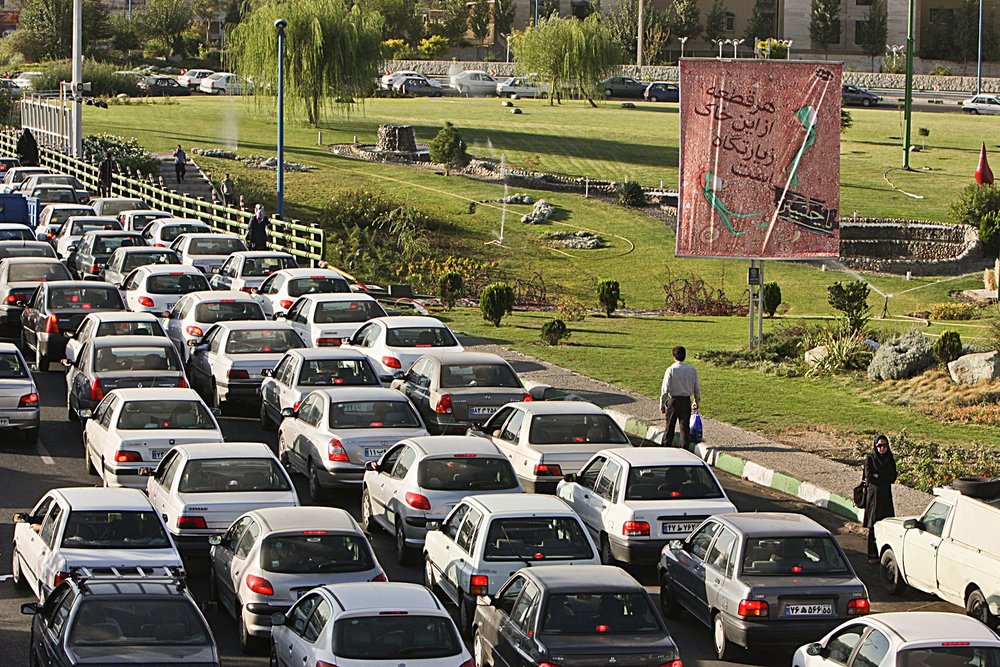Car use increases by 40% in h2 in Tehran: deputy mayor

TEHRAN — Car use surges in the second half of the year by 40 percent in the capital, Mohsen Pourseyyed Aqaei, deputy mayor of Tehran for traffic and transport affairs, has said.
Normally with the beginning of the school year (September 23) heavy, slow-moving traffic builds up in the street of Tehran, especially in early mornings when parents are trying to take their children to school and many want to go to work or university.
In order to address the issue and curb traffic congestion, governmental organizations give their employees the opportunity of a flexible working hour arrangement, so that instead of starting work at 7 a.m. or 8 a.m. employees can attend work at 9 a.m. for the next two weeks, Pourseyyed Aqaei explained.
Moreover, trucks are banned from the street until 9 a.m. throughout the city, which would again ease traffic jam, YJC quoted him as saying on Sunday.
Tehran Mayor Mohammad Ali Afshani also said on Sunday that facilitating smart traffic management is a top priority for Tehran in the current year.
Smart traffic management is a system where centrally-controlled traffic signals and sensors regulate the flow of traffic through the city in response to demand. These systems allow vehicles to communicate with each other and other roadside infrastructure like traffic lights could help make big improvements in managing the flow of vehicles across cities.
Afshani said generally the number of polluted days increase in the second half of the year, and the municipality should take effective measures to mitigate air pollution and prevent its adverse health effects.
Tehran bus operating company’s director general Peyman Sanandaji said on Sunday that all buses are required to pass inspection which ensure that they conform to regulations governing safety and emission in order to ply the city as of September 23.
There are 6,200 buses in Tehran of which 3,850 are clunkers and they had to be repaired before the beginning of the school year to comply with national emission standards, Sanandaji explained.
He went on to say that there are 52 schools for special children in the capital and Tehran municipality has provided them all with school buses which are also equipped with wheelchair lifts.
Sanandaji also commented on student transport to and from school, saying that all students can use especially designed school buses distinguished by special signs in all 22 districts of Tehran which run on fixed routes and students will get 50 percent discount for using the services.
Unfortunately, Tehrani citizens suffer choking air pollution during autumn and winter, mostly caused by inversion.
Normally the temperature of the atmosphere decreases with height, meaning it gets colder the higher you go. However, a temperature inversion occurs when the atmosphere actually becomes warmer as altitude increases. Temperature inversions have a major impact on air pollution and air quality.
Temperature inversion traps pollution at ground level. Pollution, including that from road traffic will be trapped, so the layer closes to the ground becomes more and more polluted and this continues until the prevailing meteorological conditions change.
And overuse of private cars, as well as clunker, heavy-duty vehicles, which emit great amounts of pollution would exacerbate the conditions and make it harder to breathe in the city.
MQ/PA
Leave a Comment